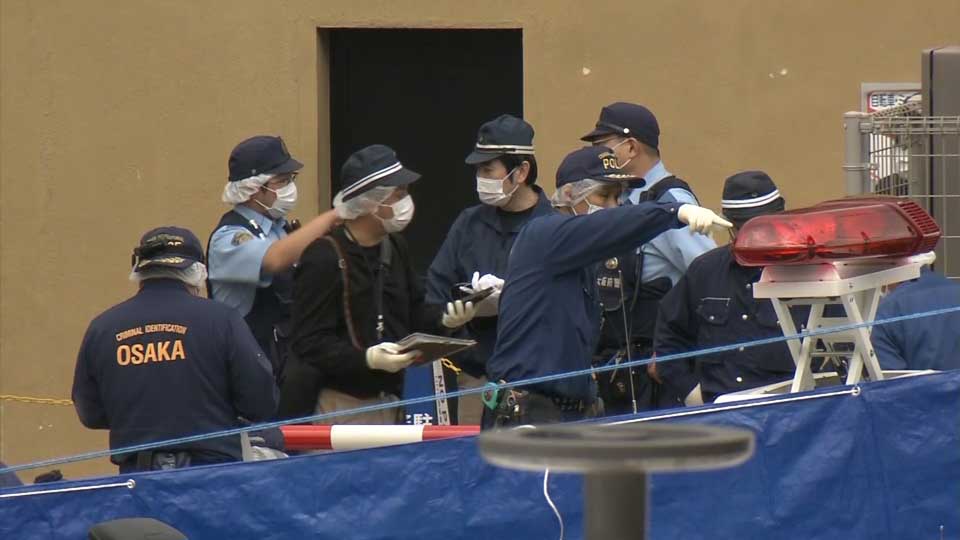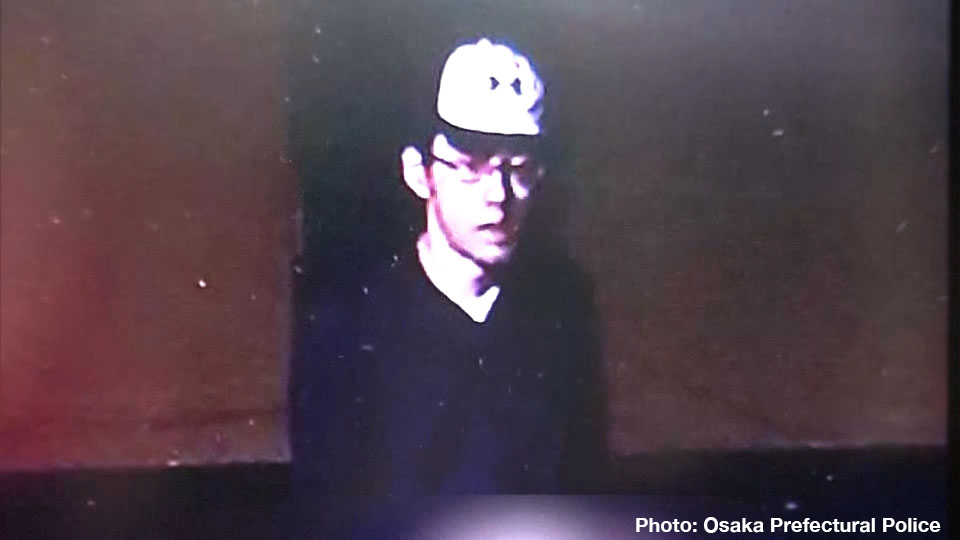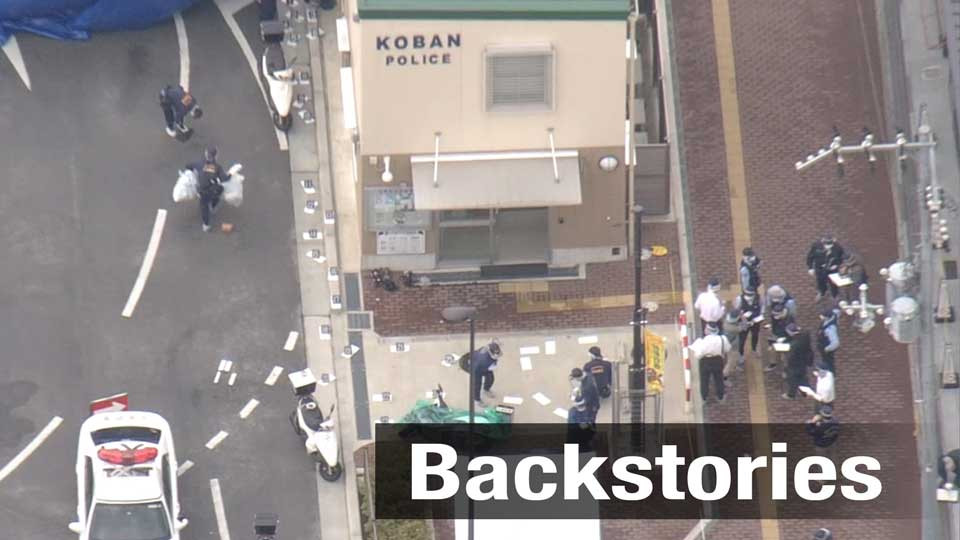A shocking Sunday morning

The officer, Suzunosuke Kose, who was on duty at a police box in Suita City was found stabbed around 5:30 a.m. on Sunday. His handgun, loaded with five bullets, had been stolen. Kose remains unconscious and in a critical condition, with wounds to his chest and six other locations.
Local people were warned to be on the alert and stay indoors where possible, while many schools cancelled Monday classes.
On Sunday afternoon, police released images from the box's security camera of a man acting suspiciously in the vicinity.

Later in the day, they received a call from a person who said the man looked like his son. Investigators identified the suspect as Yujiro Iimori, of Tokyo's Shinagawa Ward.
And, more than 24 hours after the incident, police apprehended Iimori in the city of Minoh shortly after 6:30 a.m. on Monday. They found him in a mountainous area, lying on a bench beneath which the gun had been placed.

Investigators say they found evidence suggesting the recovered gun had been fired once. Twenty minutes after Sunday's stabbing, some people living near the police box, say they heard a loud bang.
Police say Iimori denies the allegations of robbery and attempted murder.
"I didn't do it," he reportedly told investigators. "I think it's because my sickness is getting worse. It's because the people around me are getting worse."
The suspect is reported to have lived in Suita City until graduating from senior high school, suggesting he may have been familiar with the area.
Preventing police box attacks
The incident occurred at a time when police have been taking steps to prevent such attacks.
Japan has recently seen a series of incidents in which police officers were attacked and had their pistols stolen while on duty.
Last June, a man killed an officer at a police box in Toyama City and took a pistol. The attacker used the gun to shoot dead a security guard at a nearby elementary school.
Since 2013, police officers have had their guns stolen on nine occasions, including the latest incident. In five of the cases, perpetrators fired the stolen guns, causing casualties in three cases.
And last September, a 21-year-old university student stabbed an officer to death at a police box in Sendai City. The attacker did not steal a pistol in that case. He was shot dead by another officer and his motives remain unknown.
Protecting the police
The National Police Agency has been taking measures to prevent similar incidents from happening again at any of the nation's approximately 6,000 police boxes.
They include requiring officers to wear stab-proof vests while on duty and deploying multiple officers at each police box. The agency is also promoting the introduction of anti-theft pistol holsters.
Officers from the local koban are often the first responders to emergency calls from people in their time of need. Routine neighborhood patrols remain at the heart of police activities, but that sense of reassurance is being shaken as community-level policing increasingly comes under attack.
Does Japan need all its police boxes?
For some pointers on the possible way ahead, we spoke with an expert on the Japanese police. Masahiro Tamura of Kyoto Sangyo University says the koban network is in need of review.
He says that sometimes there's only one officer on duty at each box, so forces have been stepping up measures to protect them. So far, they've rolled out more protective gear, as well as equipment to prevent guns from being stolen.
The koban system originated in Japan and has long been a key element in communities across the country. Most people will tell you that police boxes contribute to a general sense of safety.
But, Tamura says, there may no longer be a need for a round-the-clock police presence, as cell phones allow anyone to make an emergency call, wherever they are -- there's no reason to seek out a koban for that.
He suggests the larger police stations can cover the duties of the boxes during early morning and at night. That's one way the number of koban might be scaled back, which could eliminate the problem of officers being left alone and vulnerable to attack.

